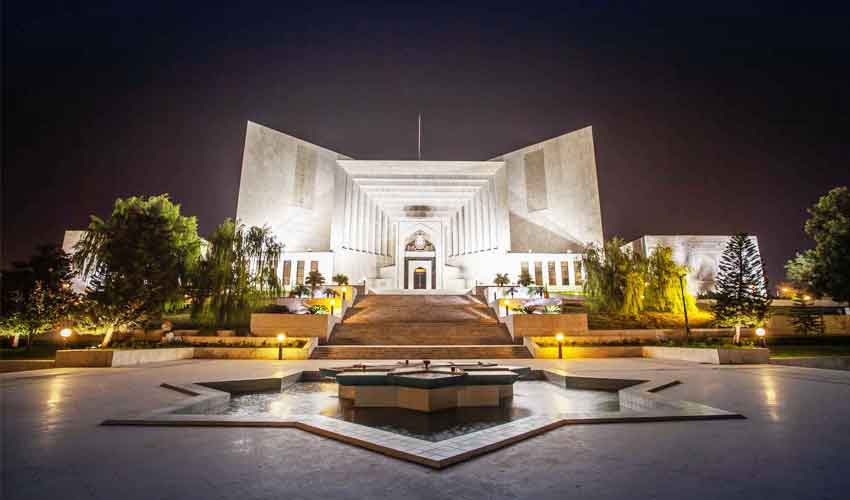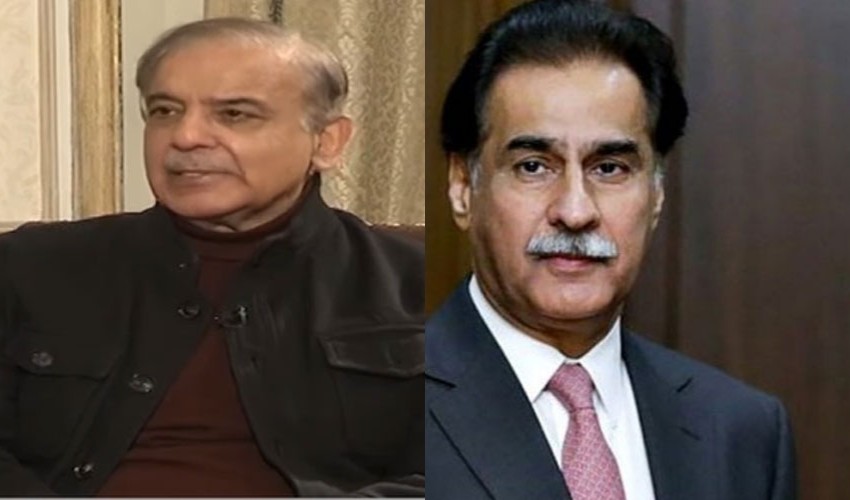The Supreme Court's Justice Jamal Khan Mandokhel has responded in writing to a letter written to him by senior apex court judge, Justice Mansoor Ali Shah, saying the latter's suggestions regarding the rules and strict mechanism for appointing judges in the judiciary have been considered previously and his letter in this regard will also be studied.
Justice Mandokhel also said that Justice Shah could give his suggestions to the Rules Committee in the future also.
Justice Mandokhel further said in his letter that Justice Shah spoke about the 26th Constitutional Amendment also. "I will not respond to it because petitions against it are pending in the Supreme Court," he replied. "I am also of the same opinion that the intention of the Constitution is that the judiciary should be independent and impartial. The members of the judiciary should be competent and honest, and the rules are being specifically made for this purpose. The Judicial Commission was reconstituted after the 26th Amendment."
Justice Mandokhel, the head of the committee responsible for making rules for judicial appointments, said the new commission gave the chief justice of Pakistan the authority to form a committee to make the rules for judges' appointment, which the CJP did under his leadership.
"The committee has held two meetings, and your recommendations have already been included in the draft and I have shared the proposed draft with you before writing the letter. The mandate of the committee is only to prepare a draft of the rules for the appointment of judges. It has been learnt that you suggested the names of judges for three high courts. My suggestion is to give the names of judges after the approval of the rules by the commission," the letter stated.
Also Read: Justice Shah raises concerns over judges' appointments after 26th amendment
On Friday, Justice Mansoor Ali Shah had written a letter to Justice Jamal Mandokhel, saying that after the 26th Amendment, the balance of the role of the judiciary in the appointment of judges had deteriorated.
According to Justice Shah, the judiciary once had a prominent role in appointing judges, but the 26th Amendment has shifted the balance of power, increasing the role of the executive. He warned that if any appointment were made contrary to established criteria and strict rules, it could significantly damage public confidence in the judiciary.
Justice Shah emphasized that the creation of transparent rules by the Judicial Commission is critical for the independence of the judiciary. He pointed out that without these rules, any proceedings or decisions made by the Judicial Commission regarding judicial appointments would be unconstitutional. Article 175(4) empowers the Judicial Commission to make rules, the letter stated.
The letter further noted that the 26th Amendment has disturbed the equilibrium between the judiciary and the executive, leaving the judiciary in the minority within the Judicial Commission. The executive now holding a majority in the commission increases the risk of political appointments.



























